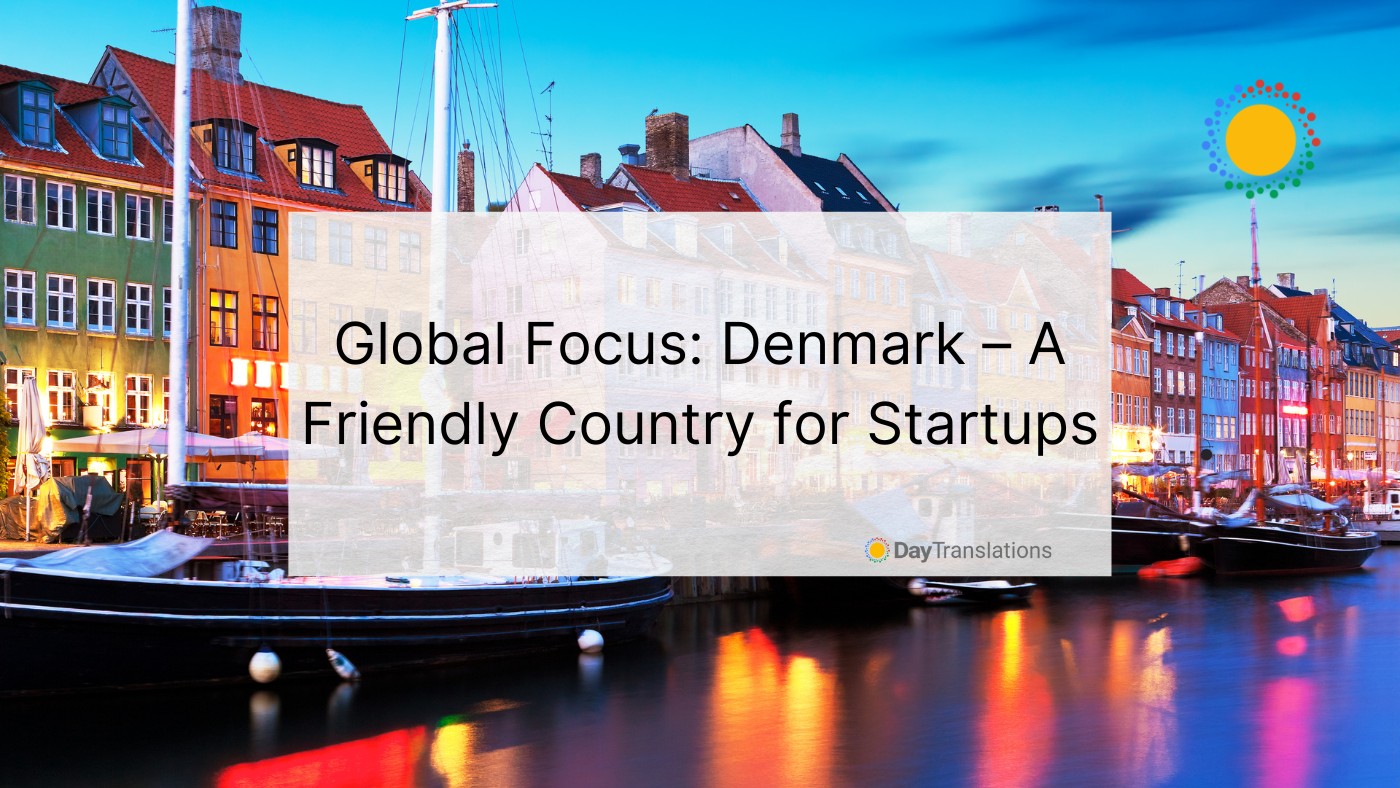The Kingdom of Denmark is a Scandinavian nation in Northern Europe that is surrounded by Sweden, Norway and Germany. Greenland and Faroe Islands are its autonomous countries. As of 2018, Denmark is inhabited by 5.8 million people.
Danish is the national and only official language in Denmark. It is mandatory in the country to learn English, making it the most spoken second language of the Danes. Other languages spoken in the country include German, Greenlandic and Faroese, which are recognized as minority languages. The Danes also have the option to learn French.
Denmark’s past
In ancient times, Denmark was known as a seafaring nation and one of the countries where the Vikings originated. The Vikings were known for their strength, seafaring prowess and conquests.
With the wars that occurred in the region in the 16th to the 19th century, Denmark decided to remain neutral when World War I broke out.
In the early part of the 20th century, Denmark introduced reforms in labor and society, which later became the basis for the country’s welfare state model, with a mixed economy that is strongly developed.
The country put an end to absolute monarchy in 1849 with the signing of the Constitution of Denmark. It now has a constitutional monarchy with the seat of government located in Copenhagen, the primary commercial center, largest city and the capital of Denmark. The country is a founding member of the United Nations, the OSCE, OECD, the Nordic Council and the NATO. For travelers to Europe, Denmark is a Schengen Area member.
Denmark today
Today, Denmark is distinguished as one of the world’s most socially and economically developed countries. Its citizens have a high standard of living. Denmark is also known for its high performance metrics in human development, prosperity, democratic governance, civil rights protection, healthcare and education.
Denmark ranks highest in the world in terms of various aspects, such as:
- personal income tax rates
- incomes per capita
- most developed country (11th)
- equality in incomes
- social mobility
These qualities of Denmark matter to the global business community. For several years, Denmark has remained on the top of the list of countries that are very friendly to startups. It is one of the countries in Europe with the lowest level of corruption. It’s one of the reasons why many countries in Europe are lucrative for entrepreneurs. Aside from the low level of corruption, the country makes it easy for investors to set up their business.
The business environment in Denmark
The World Bank is one of the international organizations that regularly conduct surveys to evaluate the friendliness of countries around the world for businesses. The World Bank regularly comes up with the Ease of Doing Business Index. The survey objectively evaluates the business regulations and their enforcement in 190 countries and cities worldwide.
The World Bank Report contains various criteria that are conducive to business, like ease of starting a business, enforcing business contracts, property registration, employing staff, dealing with construction, availing of credit, tax payment, and cross-border trading.
In the Ease of Doing Business Ranking for 2108, Denmark ranks third, after New Zealand and Singapore. Its neighbors, Norway and Sweden ranks 8th and 10th, respectively. The United Kingdom ranks 7th, and surprisingly, Germany is 20th.
Other European countries received lower rankings, as follows:
- 17th – Ireland
- 28th – Spain
- 31st – France
- 32nd – Netherlands
- 33rd – Switzerland
- 46th – Italy
Competitiveness of the business environment
On the other hand, the World Economic Forum annually publishes a Global Competitiveness Report. In the organization’s own definition, the report identifies the hindrances to business growth and helps energize the development of pertinent strategies to accomplish sustainability in economic progress.
The report is considered the most authoritative and comprehensive assessment of the relative weaknesses and strengths of the economies of nations. It is used as a highly credible reference by business leaders, academics, and governments. If reflects Europe’s present economic environment including the effects on the region’s economy when there is an economic downturn. It is a gauge of the countries’ economic stability.
Denmark, together with Finland and Sweden rank high due to their macroeconomic stability. Their levels of public indebtedness are very low. Moreover, their budget surpluses are very robust. The Country Profile Highlights of the report have a summary of the strong economic qualities of each country.
Property rights, monetary freedom, trade freedom and business freedom are some of the criteria measured by the report, which measures 179 countries around the world. Currently, Denmark ranks 9th in terms of economic freedom.
A number of European countries also have low levels of organized crimes, cronyism and corruption, which are considered very detrimental for investors and entrepreneurs. For a long time, the countries in Southern and Eastern Europe are known for high levels of corruption, such as Greece and Italy. Other European regions are able to maintain a moderate or low level of corruption, which significantly affects the success of business ventures.
Based on the 2016 report of the Transparency International’s Corruption Perceptions Index (CPI), Denmark ranks first when it comes to low corruption levels. The CPI is an annual publication that measures the effect of corruption on the economy, politics and daily lives of the citizens in 180 countries around the world. The report summarizes data from 13 different business and expert surveys.
In the Central European and Scandinavian regions, topping the list are the following countries:
- 1st: Denmark
- 3rd: Finland
- 4th: Sweden
- 5th: Switzerland
- 6th: Norway
- 8th: Netherlands
- 10th: United Kingdom and Germany
- 17th: Austria
- 19th: Ireland
Conversely, some of the Southern European countries with high levels of corruption are:
- 29th: Portugal
- 41st: Spain
- 60th: Italy
For the Southeastern and Eastern countries, widespread corruption was recorded in these locations:
- 22nd: Estonia
- 29th: Poland
- 31st: Slovenia
- 38th: Lithuania
- 44th: Latvia
- 47th: Czech Republic
- 54th: Slovakia
- 57th: Romania and Hungary
- 69th: Greece
- 72nd: Bulgaria
The corruption indices were also quite high in the countries in Eastern Europe that formerly belonged to the Soviet Republic:
- 79th; Belarus
- 131st: Ukraine and Russia
The environment for small businesses and startups
Denmark consistently ranks high in the list of best countries for doing business. From consistently being number one, it now ranks third this 2018 as the best worldwide. It’s a remarkable success for Denmark for the past seven years.
Using the 2018 report of World Bank as the base, you have a higher chance of success in Denmark if you want to grow your small business or you are intending to start a business. It has surpassed some of the bigger countries, which are already global business giants, such as China, the United States, United Kingdom, South Korea, Australia, Canada, Germany and the United Arab Emirates, among others.
Denmark, according to the World Bank Index, provides one of the most attractive and dynamic business environments in the world. Copenhagen, the economic center of the country, has several industry clusters and innovative companies. The capital city has the world’s most flexible labor market, with plenty of very skilled workforce. The business costs in Copenhagen are very competitive.
Resources: Fintech and Localization go together when expanding to international markets. Visit our free guide on Going Global in the Fintech Industry.
Denmark’s capabilities
A list of capabilities makes Denmark one of the best countries to start or grow a business. It is number one in construction and trading. The World Bank weighs 11 business regulation areas such as tax payments, property transfers, building permit quality and costs, as well as the time it takes to set up a business.
Denmark is the world’s best in terms of two categories:
- Dealing with Construction Permits that checks the ease and process of getting permits for construction.
- Trading across Borders wherein time and cost of import and export is measured.
These are not all the categories where Denmark obtained very high scores. The country is 8th in terms of paying taxes, 7th in resolving insolvency, 11th in property registration and 16th in getting an electricity connection.
Denmark’s economy enjoys contributions from many industry sectors. It’s advanced in renewable energy, maritime shipping, foreign trade and pharmaceuticals. Its agricultural sector uses advanced high technology processes. It exports gas, oil and food and has a good level of surplus balance of payments, even if the country has to import raw materials needed by its manufacturing industry.
The standard of living of Danes is very high. The welfare measures of the government are extensive, which boost its economy and the income distribution is equitable. While Denmark is an EU member, it successfully managed to have an opt-out, so it does not have to adopt the euro and maintains the Danish Krone. It is a very strong trade liberalization supporter.
Therefore, if you’re a small business owner or still planning to start a business, check out the capabilities of Denmark and see if the country’s capabilities fit your mission and vision.
Need help in Danish language translations?
If you need help in Danish language translations, contact Day Translations, Inc. We have native speaking translators worldwide who can respond to your translation request anytime, anywhere you are located. We are open to serve you 24/7, 365 days of the year. Our human translators work with more than 100 languages including Danish. They live in-country so you can be sure that they have a deep knowledge of the language, including its nuances, ensuring that you get the most accurate translation possible on or before your deadline. We make it easy for you to reach us. You can either call us at 1-800-969-6853 or send us an email at Contact us, whichever is convenient for you.














Sorry, the comment form is closed at this time.